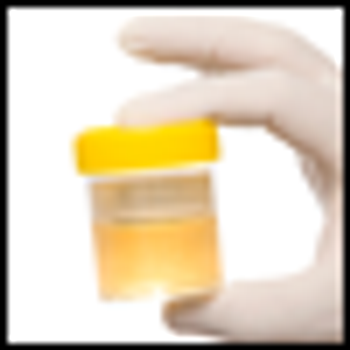
A well-written volume that provides evidence for the wisdom behind treatment of the family and/or involvement of the family when treating the patient.

A well-written volume that provides evidence for the wisdom behind treatment of the family and/or involvement of the family when treating the patient.

United Press International recently reported that construction workers in Hall, Austria have exhumed what may be turn out to be grim remains of the Third Reich’s Action T4 program that sought to exterminate mentally and physically disabled men women and children.

I was asked three interesting questions by a psychologist with 15 years experience evaluating sexually violent predators. She has testified often--both for the prosecution and for the defense in the hearings that determine the legitimacy of involuntary psychiatric commitment under SVP statutes.



The statement, “It’s okay, you can try again,” is even less useful advice to a grieving mother than originally thought.

Watson, as many will know, is not necessarily the name of a human, though the Watson of DNA fame may come to mind. Rather, in this context I am referring to IBM's artificial intelligence computer system.

Every case of patient violence against clinicians provides lessons to be learned in safety management. Here: some key points that can enhance physician safety and help minimize the risks.

Here is a “pocket guide” for clinicians drawn from actual cases. With some modification, the list could become a patient information sheet or office policy.

Pascal’s “Wager” uses “reason” to conclude that even though the existence of God cannot be determined, one should nevertheless “wager” as though God exists, because one has everything to gain, and nothing to lose.

Psychiatrists can be enormously helpful, they have experience in dealing with very difficult problems and are less fazed than others by some of the difficulties that arise.

Apart from the lack of evidence supporting their use, is there any reason not to use patient opioid agreements and urine drug testings?

Wall, echoing their grief. . . the tall green willow. . . rooted beside a stream

Is it possible to “forgive” Jared Lee Loughner for what he is alleged to have done? Is it morally justifiable to do so?

What were the key findings in the BALANCE study of bipolar 1 disorder? This and more in this quiz.

I recently shared a research article on “no-suicide contracts” with a colleague who is very knowledgeable about suicide. That article concluded--as virtually all the previous literature had-that use of suicide prevention contracts (SPC) remains a questionable clinical practice intervention.

There have been four ringing rejections of the concept of paraphilic rape--in DSM-III, in DSM-IIIR, in DSM-IV, and in a 1999 APA Task Force report. The circumstances surrounding the latter three decisions are fairly well known, the first less so.

In a recent Psychiatric Times blog, Allen Frances engaged a debate with Andrew Hinderliter over the question of change in the diagnostic categories of DSM-5.


One of the impulse-control disorders, Intermittend Explosive Disorder includes serious acts of aggression against person or property that are completely out of proportion to any provocation.

The 55th Annual Meeting of the American Academy of Psychoanalysis and Dynamic Psychiatry will take place in Honolulu, Hawaii on May 12 to 14th, alongside the APA meeting.

The psychiatric emergency room (ER) is an intense, stressful work environment where psychiatrists must perform rapid assessments and make swift treatment decisions.

On January 24, Dr Ronald Pies posted a thoughtful piece titled “Who Can Forgive Jared Loughner?” which advocates the importance of relinquishing hatred in cases like the ones in Tucson and transforming “our revulsion and rage into something higher and nobler.”

Ray Moynihan (who previously gave us the invaluable book "Selling Sickness: How Drug Companies are Turning us All Into Patients") has published a new expose titled "Sex, Lies, and Pharmaceuticals."

Charles Moser, PhD, MD, has forwarded an interesting suggestion to solve the problem of weak diagnoses that have received a free ride through previous revisions of DSM. His is a middle way intended to steer between the contrasting risks of continuing questionable diagnoses and the risks of eliminating them.

What Works for Psychiatrists in Community and Institutional Settings

Childhood and adolescent bullying-and, recently, cyberbullying-is a major public health problem with potentially devastating consequences. In any prevention effort, students need hope and to learn the skills to end the abuse, as described here.

Reflecting on my internship year evokes anxious feelings, despite the fact that I am separated from it by time, distance, and hundreds of positive experiences.

Depression Anxiety Stress Scales (DASS)Hamilton Depression Scale (HAM-D)(PDF-link)Major Depression Inventory (MDI)(PDF-link)Patient Health Questionnaire for Depression and Anxiety (PHQ-4)(PDF) PHQ 9 Modified for Adults/Adolescents (PHQ-A)(PDF)Patient Health Questionnaire (PHQ-SADS)(PDF)

Major mood disorders have been associated with increased suicidal behavior. This is especially true in patients with a mixed, manic-depressive, or dysphoric-agitated state.